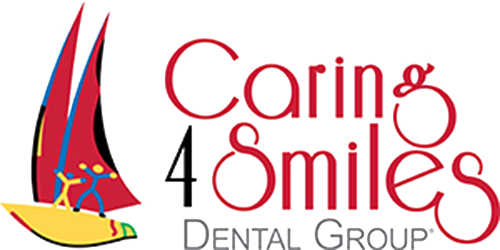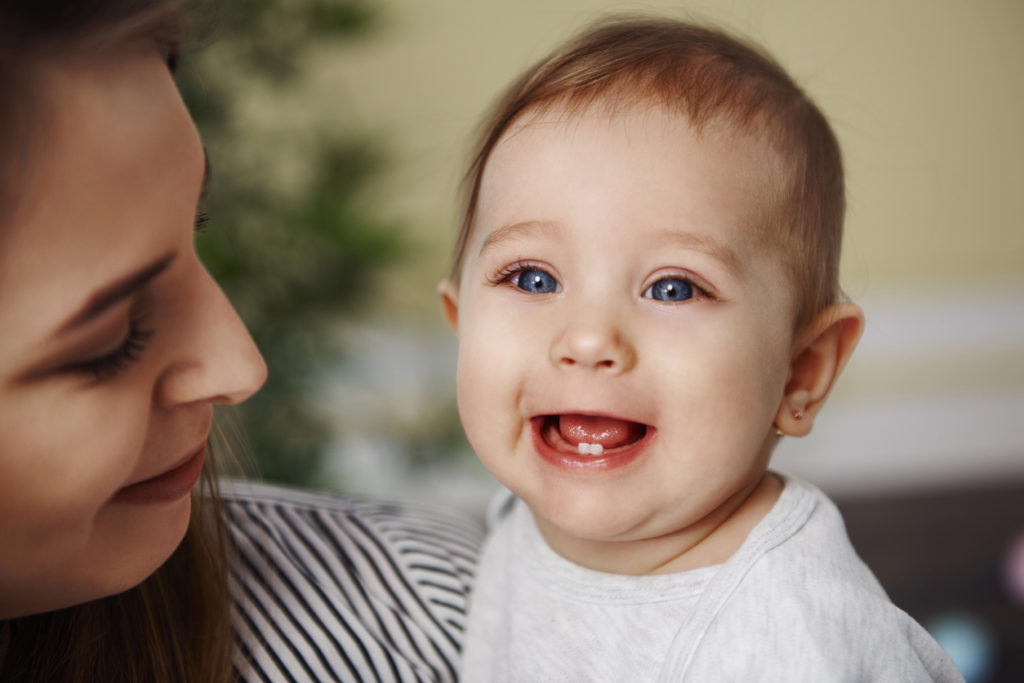There aren’t very many baby milestones as thrilling as their first tooth. When you finally see the little bit of white poking through the gums when your little one smiles, all of the drooling, gumming, and crankiness are worth it. Here’s everything you need to know about baby teeth, including when you can expect them to appear and how to care for them.
Baby Teeth Eruption
Your child’s first tooth is likely to be one (or both!) of the lower central incisors. It’s important to remember, though, that this is not always the case—and that’s fine too. Teeth erupting in the “wrong” order is a common concern for new parents, but it’s not unheard of for teeth to erupt in a different sequence than what’s shown in the chart below.
It’s also important to note that the ages mentioned below are averages. Some infants will get their teeth earlier than these age ranges, and others will get them later. This is usually determined by genetics; if you or your partner began teething early or late, your little one could be an outlier as well. This is completely normal and, in the vast majority of cases, no cause for concern. We will answer any questions you may have during your child’s first dental appointment.
When to Expect Baby Teeth to Erupt
- Lower central incisors – Between 6 and 10 months
- Upper central incisors – Between 8 and 12 months
- Upper lateral incisors – Between 9 and 13 months
- Lower lateral incisors – Between 10 and 16 months
- Upper first molars – Between 12 and 19 months
- Lower first molars – Between 14 and 18 months
- Upper canines – Between 16 and 22 months
- Lower canines – Between 17 and 23 months
- Lower second molars – Between 23 and 31 months
- Upper second molars – Between 25 and 33 months
If your child is late in teething, they will most likely lose their baby teeth later; early teethers will notice loose teeth sooner.
Taking Care of Your Baby’s Teeth
Taking care of an infant’s teeth starts with their gums. You should clean their gums with a wet washcloth every morning and night, well before their teeth start to erupt. This is beneficial for their oral health, but it also lets them get used to the feeling and routine of having their mouths cleaned.
It’s time to start brushing your child’s teeth as soon as you see their first tooth emerging from the gums. A baby toothbrush or a silicone finger brush are both good options. Brush your little one’s teeth twice a day with a tiny dab of fluoride toothpaste the size of a grain of rice.
Your child’s dental health is also influenced by what he or she eats and drinks. Never put your baby to bed with a bottle; when babies fall asleep with bottles in their mouths, the liquid pools around the teeth, causing decay. Instead of fruit juice, serve your child milk, water, or formula (depending on the age) and a well-balanced blended diet that includes plenty of whole grains, fruits and vegetables, and calcium- and protein-rich foods.
Learn More About Caring for Your Baby’s Teeth
Is it time for your child’s first dental visit? Contact us today at 09 631 5416 to schedule an appointment at Caring 4 Smiles in Epsom.

